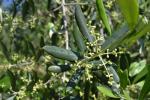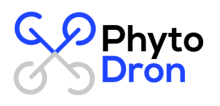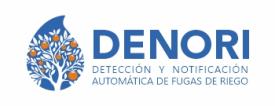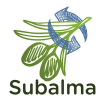
INDIBIO-OLIVAR Operational Group: Innovative model of biodiversity indicators in olive groves with vegetation cover within the framework of the CAP 2023-2027
- Type Operational group
- Status In progress
- Execution 2023 -2024
- Assigned Budget 290.328,07 €
- Scope Autonómico
- Autonomous community Andalucía
- Project website GO INDIBIO-OLIVAR
- Development and validation of biodiversity sampling protocols for assessing the effect of canopy management practices on a wide range of olive grove types.
- Assessment of the impact of olive grove canopy management on arthropod fauna (in soil, vegetation, and trees), mammals, and birds; and development of a biodiversity index.
- Application of the biodiversity index at the local and regional scale.
- Promoting good practices to improve biodiversity.
The project aims to develop indicators that allow for an objective assessment of the effect of different types of vegetation cover on biodiversity in olive groves. Given the expected quantitative increase in the area of olive groves with both live and inert vegetation cover in the coming years, the project aims to develop and implement a series of information tools to assist in decision-making at the farm level to combine productivity with biodiversity improvement in the various types of olive groves.
The project also promotes a circular bioeconomy model in olive groves, ensuring the sustainable use of the biomass generated and the provision of ecosystem services. Through these efforts, INDIBIO-OLIVAR seeks not only to benefit local farmers but also to contribute to more sustainable agricultural practices globally.
The overall objective of the project is to develop protocols for sampling biodiversity indicators in olive groves and validate them in relation to the objectives of the new CAP.
Through this objective, the INDIBIO-OLIVAR project aims to support regional and national governments, as well as farmers, in improving olive grove management by integrating sustainable canopy management as a practice to maintain and promote biodiversity.
- Development of a quick reference guide describing biodiversity sampling protocols, providing information on the biology and identification of the most abundant animal species in olive groves, and providing links to websites where information and identification keys for the most complex groups can be found.
- Development of a digital tool available to technicians and farmers to calculate the biodiversity index based on the type and area of vegetation cover. This index can assist in decision-making to improve the natural capital of olive groves at the farm level.
- Improving ecosystem services in terms of biodiversity and the circular bioeconomy on the network of collaborating farms and on other farms owned by owners participating in dissemination efforts.
- Coordinator/entity name: ASAJA-Sevilla
- Postal address: Av. San Francisco Javier, 9, 41018, Seville
- Coordinator/entity email: info@asajasevilla.es
- Telephone: 954651711
- ASAJA-Sevilla
- ASAJA-Sevilla







